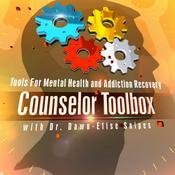00:00 Introduction to Oxytocin
00:28 Why Oxytocin Matters: Key Health Benefits
01:52 What is Oxytocin? Role in the Brain
02:59 Oxytocin and Survival: Bonding and Threat
03:17 Oxytocin’s Impact on the Nervous System
04:07 Stress Reduction, Safety, and Oxytocin
05:06 Therapeutic Applications: Animal-Assisted Interventions
06:07 Circadian Rhythms and Sleep Improvement
07:12 Oxytocin and Sleep Quality
09:05 Physical Healing, Immunity, and Stress
09:56 Anti-inflammatory Effects and Immunity
13:05 Gut Health and Nutrient Absorption
16:04 Oxytocin’s Role in Nutrition and Metabolism
17:26 Oxytocin and Immune System Strength
18:49 Pain, Healing, and Energy with Oxytocin
21:31 Appetite, Weight, and Emotional Eating
24:19 Hormones and Long-Term Stress Effects
26:08 Oxytocin, Estrogen, Testosterone, and Behavior
28:20 Oxytocin and Mental Health Disorders
31:31 Oxytocin: Serotonin, Dopamine, and Brain Chemistry
33:07 Anxiety, Social Cues, and Cognitive Functions
35:51 Oxytocin in ADHD, Autism, and Avoidance
39:58 Oxytocin’s Role in PTSD, Trauma, and Personality Disorders
45:00 Interpersonal Effects and Empathy
47:47 How Context and Safety Shape Oxytocin’s Impact
52:02 Diet, Nutrition, and Lifestyle Strategies
53:20 Behavioral Practices to Boost Oxytocin
58:49 Social Bonding, Forest Bathing, and Unique Boosters
01:00:05 Physical Warmth, Touch, and Laughter
01:01:02 Collaboration and Social Activities
01:02:04 Summary: Oxytocin as the Survival Hormone
01:03:08 Q&A, Gut Health Stories, and Closing Thoughts
Learn more about your ad choices. Visit megaphone.fm/adchoices



